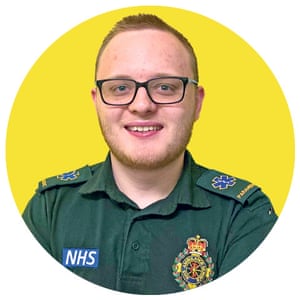
[ad_1]
Fancy a career in the NHS? You’ll probably first think of becoming a doctor or a nurse, but in reality there are more than 350 different careers, not all of which are patient-facing. There are a host of specialist vocational qualifications in healthcare on offer at universities, and degrees in IT, computing, English or maths can open the door to jobs in health informatics, communications and finance too. Here are three unusual healthcare degrees and where they could take you.
BSc (Hons) in operating department practice
This three-year undergraduate degree leads to a professional qualification as an operating department practitioner (ODP). ODPs work in all three phases of surgical care. They are responsible for supporting the patient during the anaesthetic phase ahead of surgery, as well as preparing surgical equipment and drugs. During surgery, they are the link between the surgeon and the rest of the operating theatre team and are responsible for the surgical equipment and handing what is needed to the surgeon.
After surgery, ODPs support the patient in the recovery unit, monitor them and decide when they can safely be transferred back on to a ward. With postgraduate training, ODPs can go on to become surgical care practitioners – qualified to complete certain surgical procedures under the supervision of a consultant surgeon.
BSc (Hons) healthcare science degree
When this degree is included in the NHS practitioner training programme, it can open the door to a career as a healthcare scientist. Health scientists have a crucial role in helping to prevent, diagnose and treat illness by applying their scientific knowledge and technical skills. They rely on highly specialised equipment to analyse body tissue, blood and other bodily fluids and many will also have direct patient contact working in clinics or hospital wards.
The degree is a mix of academic and practice-based learning, which can lead to different specialist roles. Students spend the first two years undergoing broad scientific training and choose which branch of health science to specialise in for their final year. The five options are: cardiovascular, respiratory and sleep sciences; neurosensory sciences; life sciences; clinical engineering or medical physics technology.
Master’s in nursing (dual registration)
This four-year degree, studied as an undergraduate, offers students the opportunity to qualify in two branches of nursing rather than the single branch of the traditional three-year programme. The combinations are: adult and child; adult and learning disability; adult and mental health; learning disability and child; mental health and child and mental health and learning disability. The master’s is also seen as a fast-track route for a career in nursing research or education. From September, all nursing degree students in England qualify for a non- refundable annual maintenance grant of £5,000. An extra £3,000 is available for eligible students.
Case study: the paramedic

University studies and practical placements helped prepare Sam Harris for his first months as a paramedic, ahead of the global health emergency
When Sam Harris started his foundation degree to become an NHS paramedic in 2017 he never imagined he would find himself on the frontline of a national and global health emergency when he graduated.
Harris, who went to Staffordshire University, joined South Western ambulance service NHS foundation trust as a newly qualified paramedic last October – just five months before the lockdown.
He admits: “It was a baptism of fire. Even colleagues who had been on the job for 25 years said they had never experienced anything like it. The main role for us was going to visit unwell patients who had been self-isolating at home and whose Covid-19 had got worse to take them to hospital.
“There was also a lot of public education – going out to patients who were experiencing virus symptoms but who were confused about the guidelines and rang 999 in a blind panic.”
Harris, 22, says his university studies and placements prepared him well for his first months on the road.
“You spend half your time on placement – the first after just three months,” he says. “You get to know the processes and the detail of how things work and then you take what you learn with you on the road.”
Harris says he always wanted to be a paramedic. “The more I looked at it the more I realised what a brilliant job it is and I just fell in love with it. I like having the ability to do a really small thing which can have a massive influence on somebody’s life – and when I started the job that’s something I noticed very quickly that I could achieve.”
From next September, the paramedic profession will become graduate-only, with an accredited three-year degree needed to practise.
[ad_2]
Source link